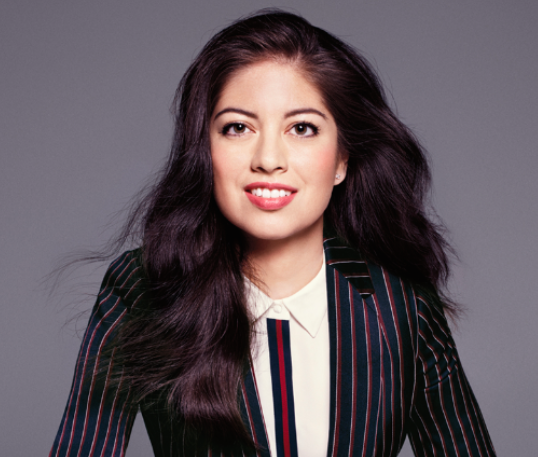
“A lot of women are investing human and social capital. It’s called volunteering and community service. It’s financial capital- actually putting some skin in the game – that’s missing.”
Dubbed “The Coach” by Marie Claire, Natalia is Founder and CEO of Pipeline Angels, a network of women investors that’s “changing the face of angel investing” and creating capital for women and non-binary femme social entrepreneurs.
Years in tech industry? 10
What was your inspiration for Pipeline Angels?
I like to say, “I leaned in before the book.” In 2007, I had just moved back to New York from San Francisco, and I went to an event for 85 Broads, which was started by Janet Hanson, was acquired by Sallie Krawcheck, and is now called Ellevate. A few attendees in the room, including a couple of Acumen Fund employees, were talking about how they had been meaning to launch a network for women social entrepreneurs and just didn’t have the bandwidth. I offered to launch the network, which I then grew from six women to over 1,200 in two years. Throughout this time, I kept hearing from women social entrepreneurs that they would go to communities and share their change-making ideas and people would get excited and offer to donate and send a check. As soon they would clarify that they were for-profit social ventures, the community would back away and ask to be notified when they launched a sister nonprofit. What I noticed is society’s definition of “changing the world” is gendered. Whenever a woman said she wanted to change the world, people assumed she was going to launch a nonprofit. When a guy says he’s going to change the world, people are generally not assuming that he’s going to launch a nonprofit. That was a big a-ha for me.
I also saw how there were many high net worth women out there making a positive impact with their money through philanthropy, through charity, through donations. I decided that I wanted to create a bridge between philanthropy and angel investing and share with these same high net worth women that they could make a positive impact with their money by investing in women entrepreneurs.
How is Pipeline “changing the face of angel investing”?
One of my favorite definitions of angel investing is that it’s “smart money,” meaning that it’s not just financial capital, it’s human capital and social capital. What sort of connections and net worth can an angel provide to an entrepreneur? What skills can an entrepreneur leverage from an angel? A lot of women are already doing two of those three things. It’s called volunteering. It’s called community service. It’s the third thing – the financial capital, actually putting some skin in the game – that’s missing. My passion is to get women investing financial capital in for-profit social ventures that are led by women and non-binary femmes. We’re creating the runway for these companies to get to the next level.
What kind of momentum have you seen since you started?
In 2011, when I launched Pipeline Angels, only 12% of angel investors were women and only 4% were minorities. For women of color, we are doubly invisible. Fast forward to the most recent stats, the number of angel investors in the U.S. who are women has grown to 26%. The number of minority angel investors is still around 4-5%. I’m proud to be a part of a movement to change the face of angel investing in terms of getting more women at the table. In addition to white women, I’m super passionate about engaging more women of color as angel investors. Getting more black women and Latinas to the table.
How many investments have Pipeline Angels made to date?
So since launching our first angel investing boot camp in April 2011, we have graduated over 200 women “angels.” They, in turn, have invested over US$4 million in 40+ companies, with two exits in under five years.
Did you have entrepreneurial role models growing up?
When I was maybe eight years old, we were living in Bogota, Colombia, in this apartment complex, and we decided to start a pizza business from our apartment. My mom cooked the pizzas, and I designed flyers and went around the apartment complex putting the flyers under people’s doors. I realize now that was kind of entrepreneurial, even though it wasn’t described to me as entrepreneurial. I was very aware of what being a “businessperson” was. I wasn’t aware that being an “entrepreneur” existed.
One of my favorite quotations is Marian Wright Edelman, “You can’t be what you can’t see.” Pipeline Angels has been so much about visibility. I know how important it is to see others. To have role models. I didn’t have those role models growing up.






